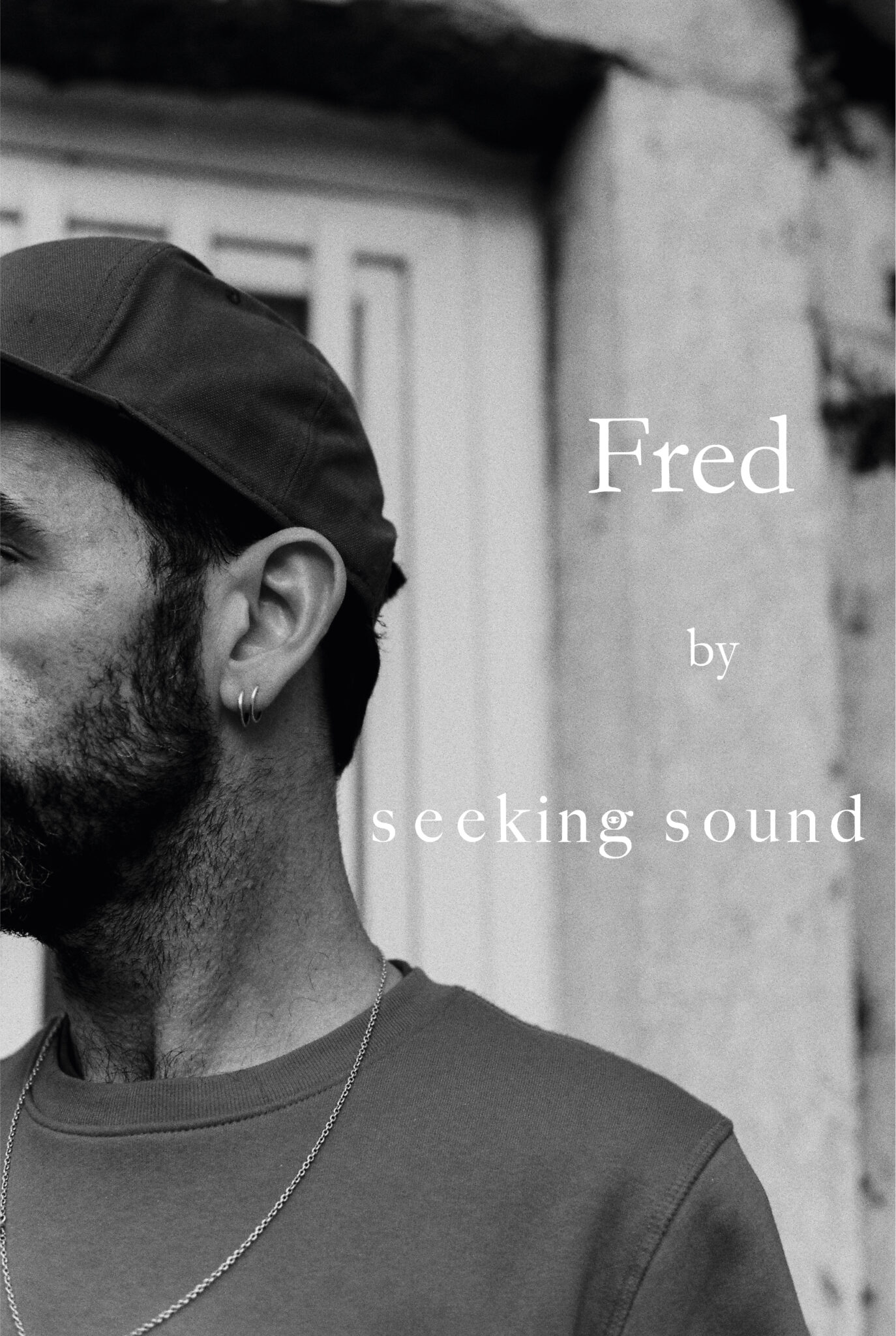“Apparently simple, it’s not a very complicated thing, but to get there, for me, was difficult. I had to dive into it to be able to reach my objective and I am very happy with the result. ”
Published on the 6th of May, 2023
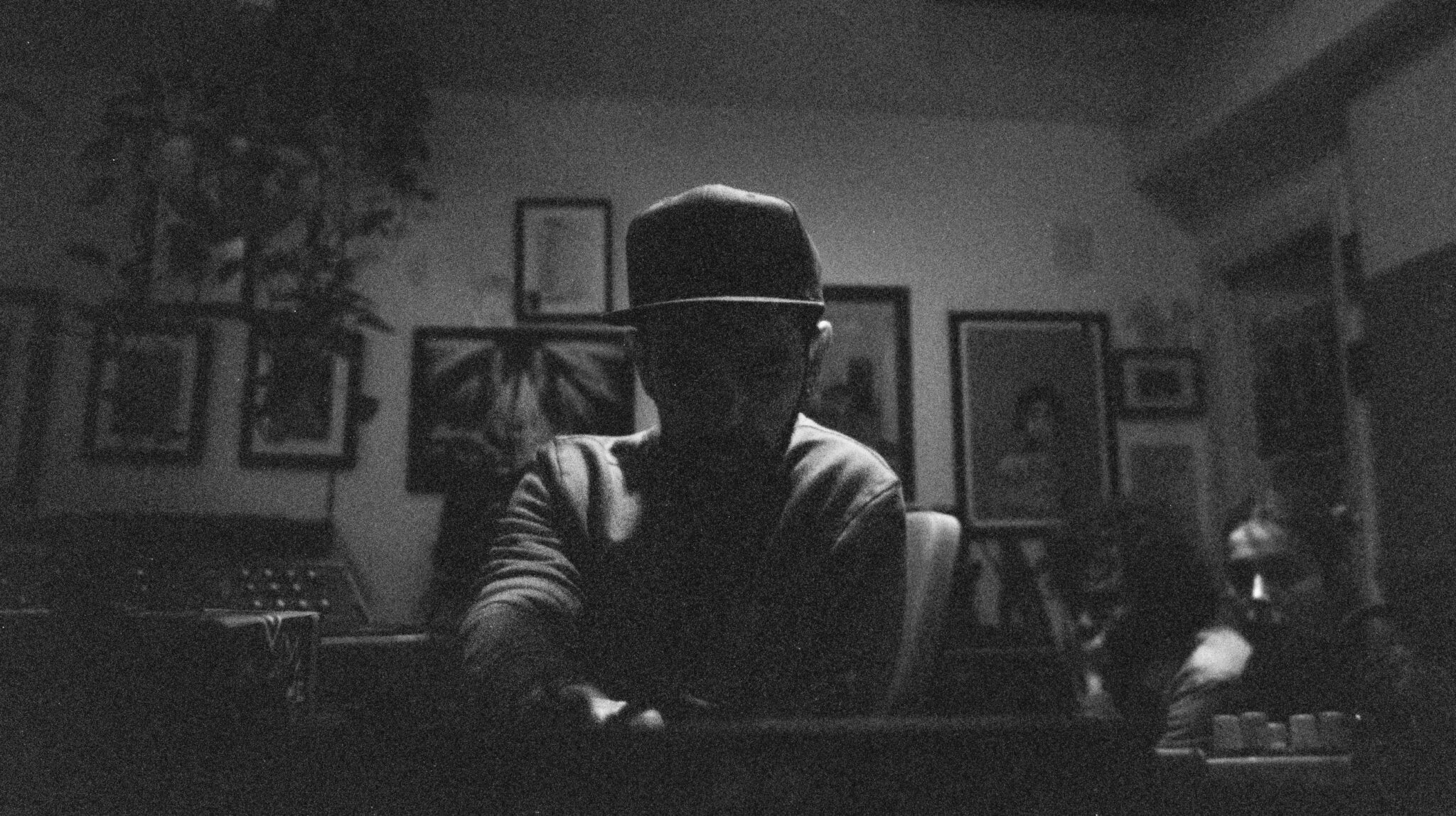
Fred Ferreira is a name that may go unnoticed by many people, but that doesn’t make it any less relevant. Music runs in Fred’s blood. Son of Kalu, drummer of Xutos & Pontapés, he started playing drums from an early age and grew up in an environment, surrounded by the best people, who taught him everything about the world of music. He is part of various projects such as Orelha Negra, 5-30 and Banda do Mar. Fred also has a solo career, having already released three albums: O Amor Encontra-te no Fim (2019), Series Vol 1 – “Madlib” (2021), and Mãos No Fogo (2023) which was made in collaboration with Regina Guimarães.

In February we had the pleasure of speaking with Fred in his studio. We talked about life, balance, and discussed each of his solo projects. Fred, like his music, presents a sensibility that is rare nowadays. It was this sensitivity and availability that made this conversation so interesting and important. I hope you enjoy reading the interview, as much as we enjoyed doing it.
We recommend you have Fred’s Spotify open by your side while reading the interview so that you can listen to any of the songs mentioned if wanted.
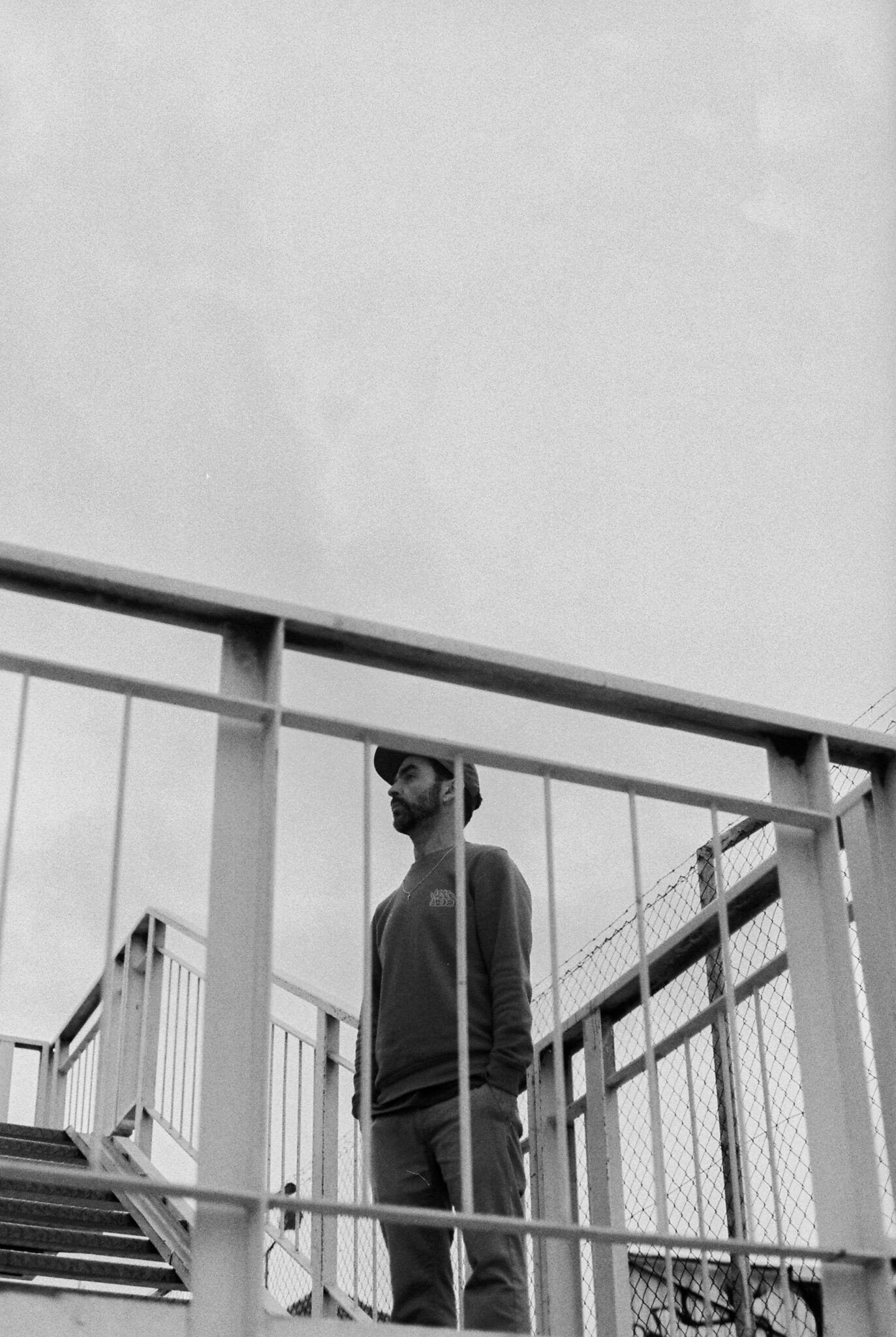
Hi Fred. Did you ever question if music was the career you wanted to pursue and wondered if that career could give you financial stability?
It’s something I think about every day. It’s the profession I chose, but I’m aware that it’s a career in which you must work a lot on your own. It depends a lot on you, on your focus, concentration, and commitment. And it also depends a little bit on luck. On getting your work to reach more people. Because in the end, it’s the feedback from people and the fact that they want to hear and see you live, that will allow you to pursue a financially sustainable career.
Fortunately, I have been able to follow my dream, but I wake up every day with an enormous will and concentration to not let this fall. Just now you were putting things together. I have my notebook there where I write down every morning everything I have to do during the day. That’s what I was doing. In this case, studio work I must do, counting the merchandise that has just arrived from the new record I’ve just released with Regina Guimarães, going to the post office to send parcels, preparing things for the concerts I’m going to have during the weekend. So, there are a lot of things you have to do to keep the machine rolling.
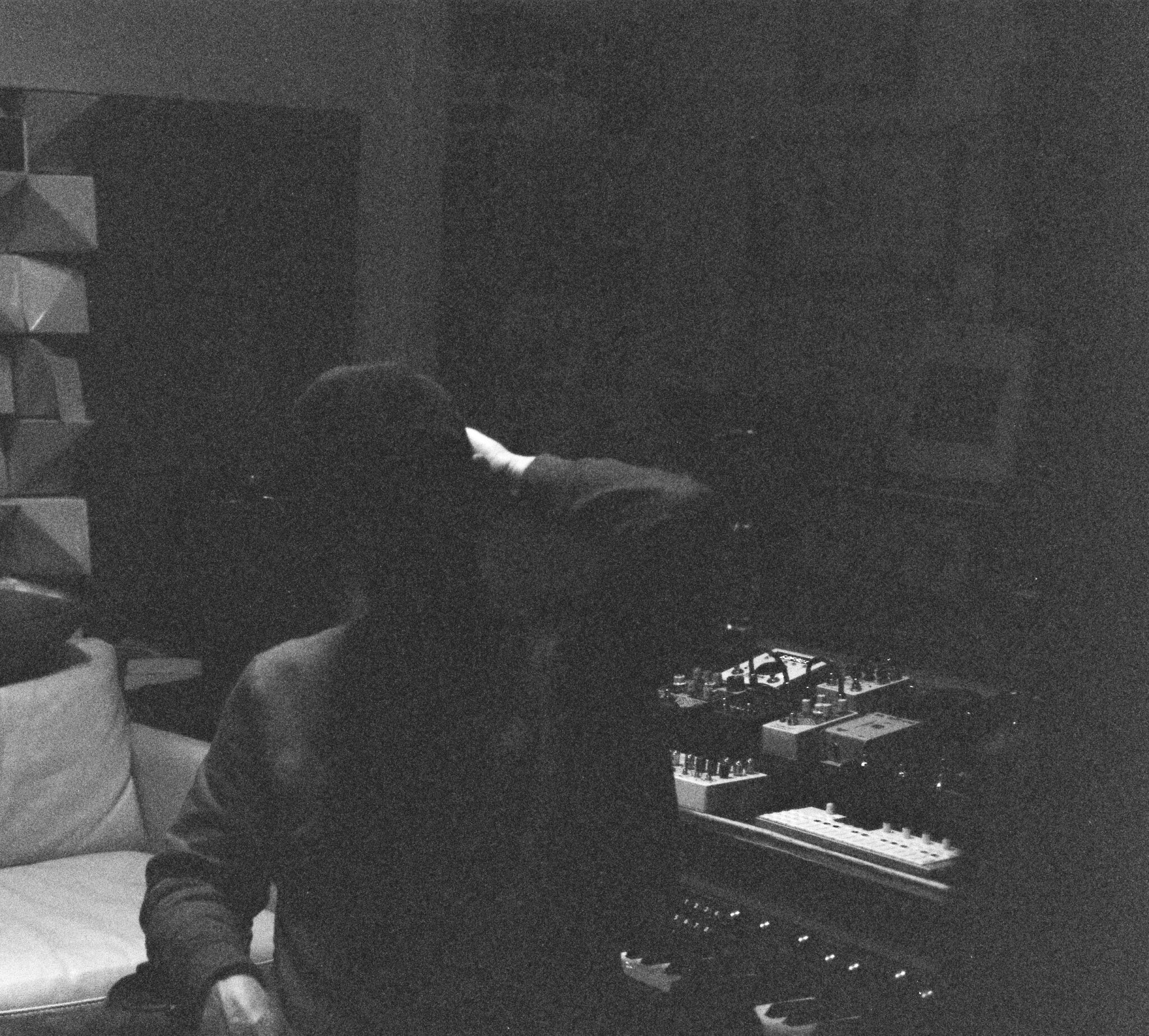

Between 2000 and 2010 you created several projects including your first band Yellow W Van, oioai, Dias de Raiva, and Orelha Negra. Later you joined projects such as 5-30, Banda do Mar, and dapunksportif. When you reflect on that period of your life, what was the biggest thing you learned from those years?
When I was 21, I was invited to play as a hired musician in a band. That would mean I would stop working in a café, to dedicate myself 100% to music. At that time, I got advice from Zé Pedro from Xutos, who told me he didn’t think I should do that and that I should keep playing with my friends. I remember being very worried about the decision I would have to make because I was just going to be a hired musician in a band where I didn’t know anyone, but on the other hand, it was going to solve my life in the sense that I could leave the café and start working only in music. I had to make that decision in a day or two and I decided to decline the invitation. So, I stayed in the café and kept playing and doing projects with my friends.
That was the biggest learning I had because even though it was a much longer road to being financially independent and just working on music, I managed to create a lot of projects. If I was a hired musician for bands, I wouldn’t have been able to do that. It was a very good decision at the time, which cost me a while. Because I continued working in the café and I thought: “God if I had decided that, I wouldn’t be here anymore, I’d be playing already”. But since then so many good things have happened, like Orelha Negra, or the chance to play with Sam The Kid, since Pratica(Mente), which changed my life. Touring with Buraka Som Sistema for a few years, made me travel all over the world, and that was spectacular. Doing the 5-30, Banda do Mar, or playing with Malu Magalhães. The decision to play with my friends was a big learning because it changed my life. The path was long, but it’s a path, which now, looking back makes me quite happy.
Apart from having a formidable solo career, being part of several bands, and producing other artists, you also compose music for film, theatre, and advertising. How did you take up this professional option?
This is a more recent project, about 10 years old, which happened naturally. I used to think a lot about touring and the effort you have to make. And the fact that it doesn’t depend only on you. I thought a lot about being able to do big tours, that also give you some return, to be able to have money to live on, and I always thought about starting to build something parallel, connected to music, that could be another source of work. I mean, it’s not strange for me to be producing in a studio, so it wouldn’t be strange for me to be inside a studio, producing music for advertising, theatre, or cinema. So, I have been working and continue to work in that direction and it helps me because I have more things to do and it gives me financial stability that allows me to live within my expectations. I am still in the studio, it’s a creative work, it’s about music and it’s a part of my life that makes me very happy.

Do you feel it’s something that helps you escape the pressure of constantly looking for your next record? Doesn’t it become overwhelming to always be thinking about the next step?
Yes, it does. Sometimes I’m a bit hyperactive in that sense. I just finished this record with Regina and I’m already thinking about a new one. That’s what drives me. I like to look back, see what I did wrong, try to correct it, and look forward, see what I want to do, where I want to be in a year, and how I want to feel. Sometimes it is tiring, but for me, it is always very challenging and rewarding to think about things that way. Also enjoy the present moment, trying my best, doing all the things, and always learning more, and more.
You recently composed the soundtrack for the Portuguese presidency of the EU Council. Why did you decide to join an electronic sound with the sound of the traditional Portuguese guitar?
These are projects that are more related to the company, which is me. In the company part, your creativity exists, but you also follow a briefing from your client. It’s not a record where you do whatever you feel like. At the time, I was told exactly about this, a Portuguese side that could perhaps have Portuguese guitars, but accompanied by something more contemporary. Then I would have to do this exercise of putting together something traditional Portuguese with a more modern side. And I studied in that sense, then I started to develop the work until I reached the final version with which I was very satisfied.
Orelha Negra started with five musician friends who had known each other for some time and who liked to improvise between concerts. That’s how a band was born. After three albums and two mixtapes released, 12 years later, I ask you: what does the Orelha Negra project mean to you?
We always thought of having fun together. And that’s something that happens nowadays and has always happened. This idea of being able to be surrounded by musicians and friends that I admire so much, being able to make music and learn from them. Being able to challenge ourselves and our technique and to do things that we’re not used to do from record to record. We are training, rehearsing, and developing our techniques. That’s our biggest victory. It’s a band that merges many genres. That’s probably the group that represents me the most in the sense that it’s the project where we put together the most genres of music. From Jazz to Hip-Hop, Funk to Soul. It’s kind of eclectic.
On Air, Antena 3.
“Ready” – Orelha Negra.
Your first solo record, O Amor Encontra-te no Fim, was something very personal and introspective, made in a room alone with two microphones and a drum set. “A search for the path to your well-being”, you said. That made you immerse yourself in a journey that had as many good things as bad. Why did you feel the need to “seek the path for your well-being”?
Because life surprises us sometimes. I am a very sensitive person about our mental state and the way we are with ourselves and those around us. I think it’s very important throughout your life to stop and reflect on how things are going. Sometimes in the life we have, and with all this running around, everything goes by very fast, and suddenly you’re so wrapped up in your work, in your projects, and in achieving the goals that you forget to stop, to listen to your friends, to build and strengthen the relationships you have. At that time, I felt that I had been focused on one goal for many years and that I had forgotten to take care of myself and the people I care about. So, it was a time of great reflection, and from that came the need to make an album. It wasn’t thought about. It was natural, I found myself at that moment, I was thinking a lot, I was making the songs, and suddenly there were 40 songs, and I chose 15 to tell what I was feeling.
You’ve already said that making this record was a very lonely thing for you. What role did the Kadampa Deuachen meditation center play in that phase of your life?
It was important because it’s a place where I went and still go sometimes to be able to stop for a while, breathe, be with myself, think better, rest, and get out of my natural habitat. I found myself there, in a silent retreat, something I had never done in my life, for a few days, with people I didn’t know, which was strange at first. After a day I was completely used to it and available to absorb everything. Listening to other people’s experiences, understanding why they are there and that my problems are very similar to theirs, and often that inner search and calmness that we chase after doesn’t fall from the sky. You have to work on it, and you must look for solutions to your balance, which is fundamental for you to be able to do your work. So, these retreats that I do sometimes are very good. They are places that force you to stop, think, be with yourself, and listen to others. This trip to the Buddhist temple and the journeys that I made alone afterward helped me to clean the dust off this love that I had here, to pick it up again and try to work on it properly, and I still continue this work today.
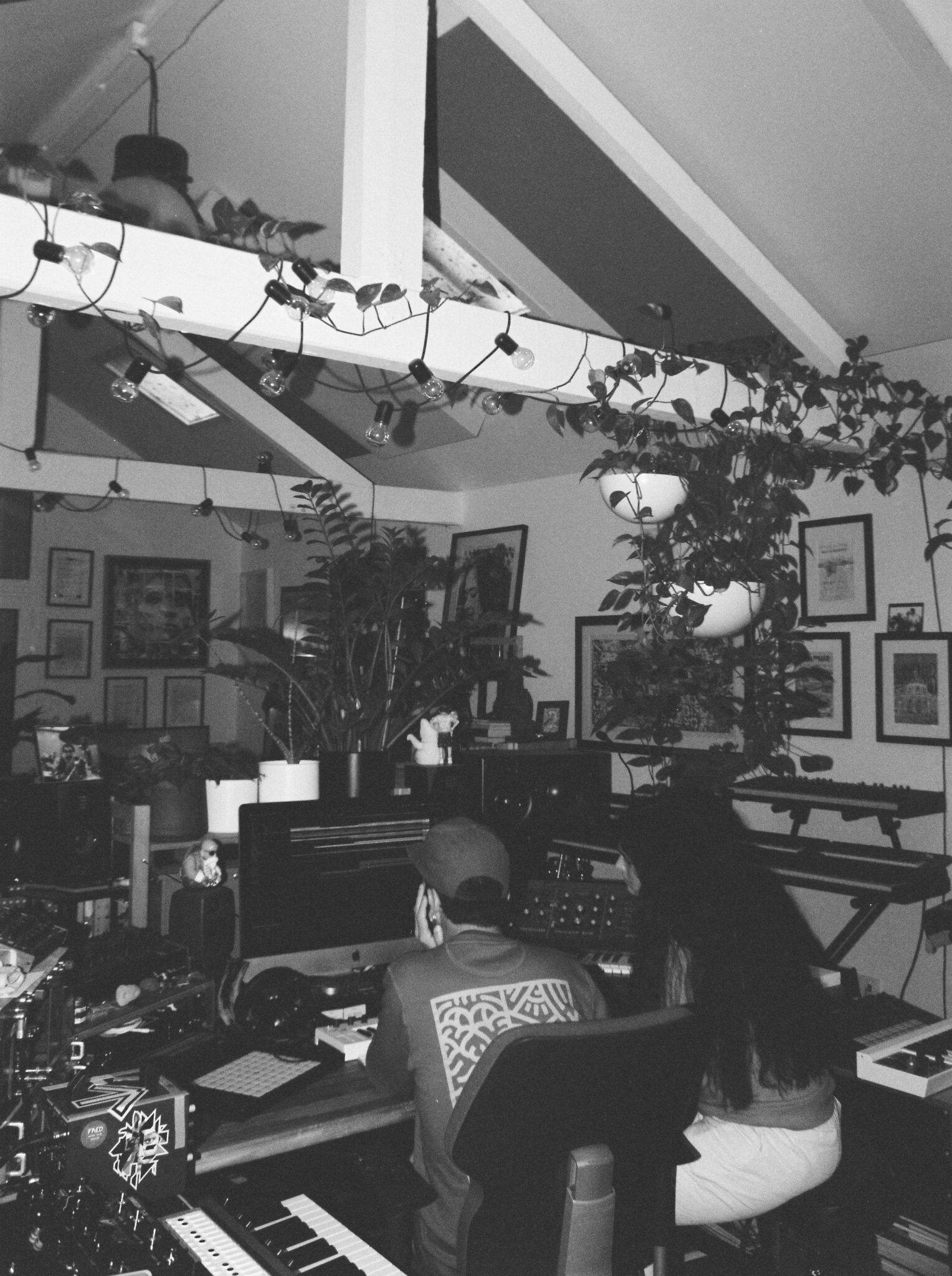
On your second album Series Vol.1 – “Madlib” you reinterpreted the work of the North American producer and composer Madlib. You already mentioned that it was difficult to find the right way, to reinterpret Madlib’s work. How did you find the right mood you wanted for this album?
I started by putting together a band, I invited some friends of mine, and we started playing. In the first few gigs, we still played a lot of songs from J Dilla, De La Soul, and Madlib. I was getting happy with the result, but it didn’t make sense for me to release an album where I reinterpreted the work of several people. I wanted to focus on one artist. At that point, I thought: Madlib is an artist I’ve followed for many years, he has a very big catalog, and he’s very eclectic. I’m going to contact him to know if I can do that. I contacted him, they gave me permission and then I went into the studio, without knowing what was going to happen.
We didn’t rehearse, I knew what I wanted. First, we listened to the original song, then we talked a bit about the possible arrangement and recorded it. After a week I had 20 songs. The songs weren’t mixed yet and I was listening, and I thought, “Ok, fine, but this needs a guiding thread, it is important to create a universe around this”. It took me a couple of months to get to the mixes and it was in the mixes that I made changes to the project. And the mixes were important to give this record its sound. Taking out details, taking out instruments, putting in more reverbs, and delays. In other words, this was a project, where creatively, the mixing part was very important because it improved the record. It was an album that made me very happy. I was coming from a very lonely record, and I wanted to get back to a space where I could share with other people. And from there create music.

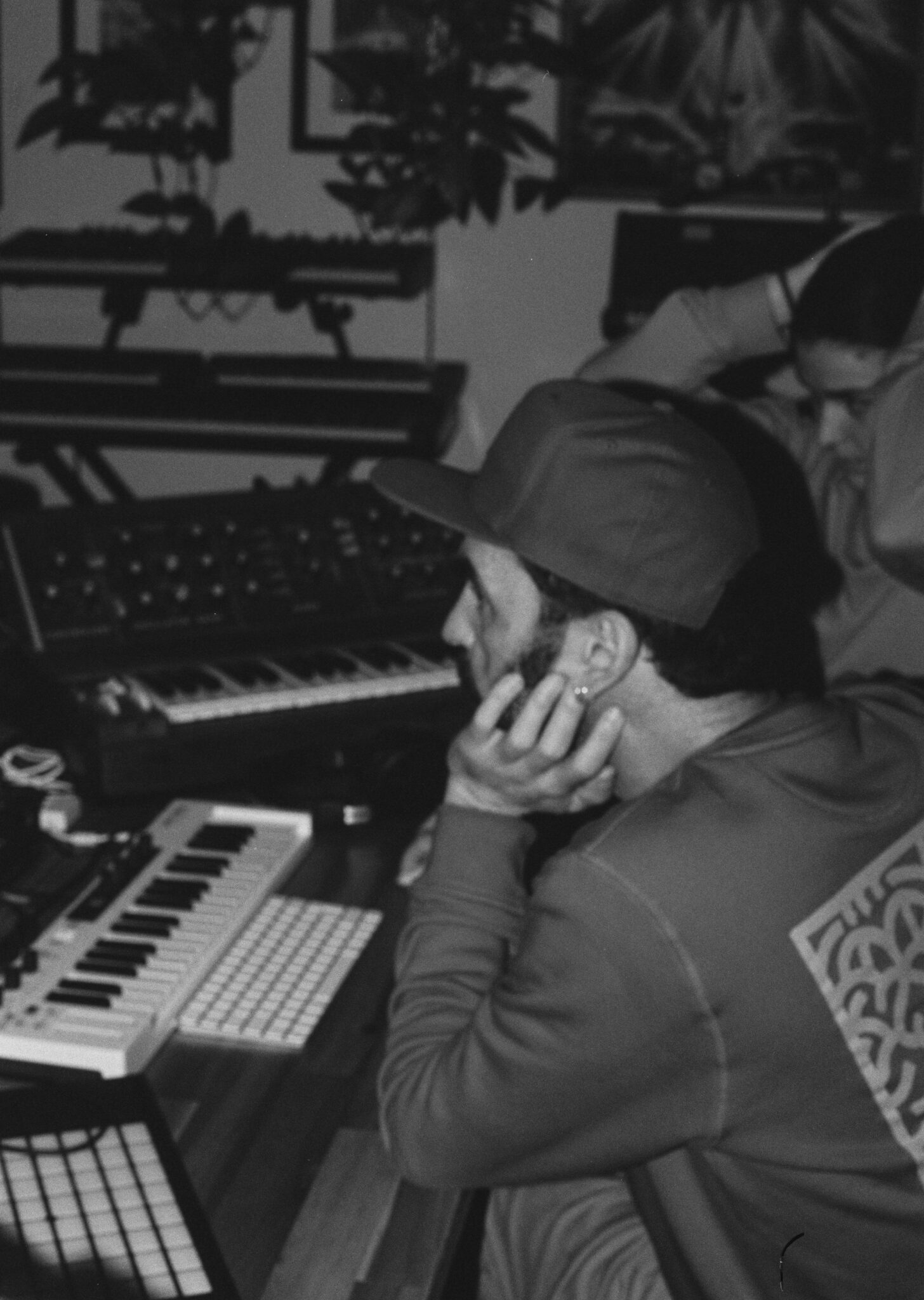
On your last album Mãos No Fogo (2023), you collaborated with Regina Guimarães. Where did the desire to work with Regina specifically come from? Also, why did you decide to incorporate poetry into your music?
Poetry has always existed in my life because of Hip Hop. Regina is a very important person who has always fascinated me since I was little because she writes the lyrics for Três Tristes Tigres, which is a band I was lucky enough to join three years ago. I had the idea of making a record where I could explore other kinds of sounds. I wanted to leave the drums to do another type of work. I wanted to have a strong voice reading the texts, which I could identify with, not recited, but rather read. As if it were a conversation or a story. Regina was the first person that came to my mind.
I contacted her and Regina agreed to experiment, I went to her house, I recorded her reading and started working. That was it, then I did it again and again and again and it was a project that I enjoyed doing tremendously. I spent the whole last year working on it. I think the record was the result of all the loneliness that there was during the pandemic. I spent those two years practically alone here in the studio. So, it’s a very deep record for me. Apparently simple, it’s not a very complicated thing, but to get there, for me, was difficult. I had to dive into it to be able to reach my objective and I am very happy with the result.
Was it difficult to understand Regina’s universe?
I think that we should know how to be. Know our place. Earlier we were talking about Orelha Negra. Understand them to know where I can fit in. It’s the same here. I must understand Regina to know how I can fit in there. I don’t want to be more prominent. I want to work so that the ensemble works. My music doesn’t stand out before her words, and deep down I want this to touch people the way it touched me.

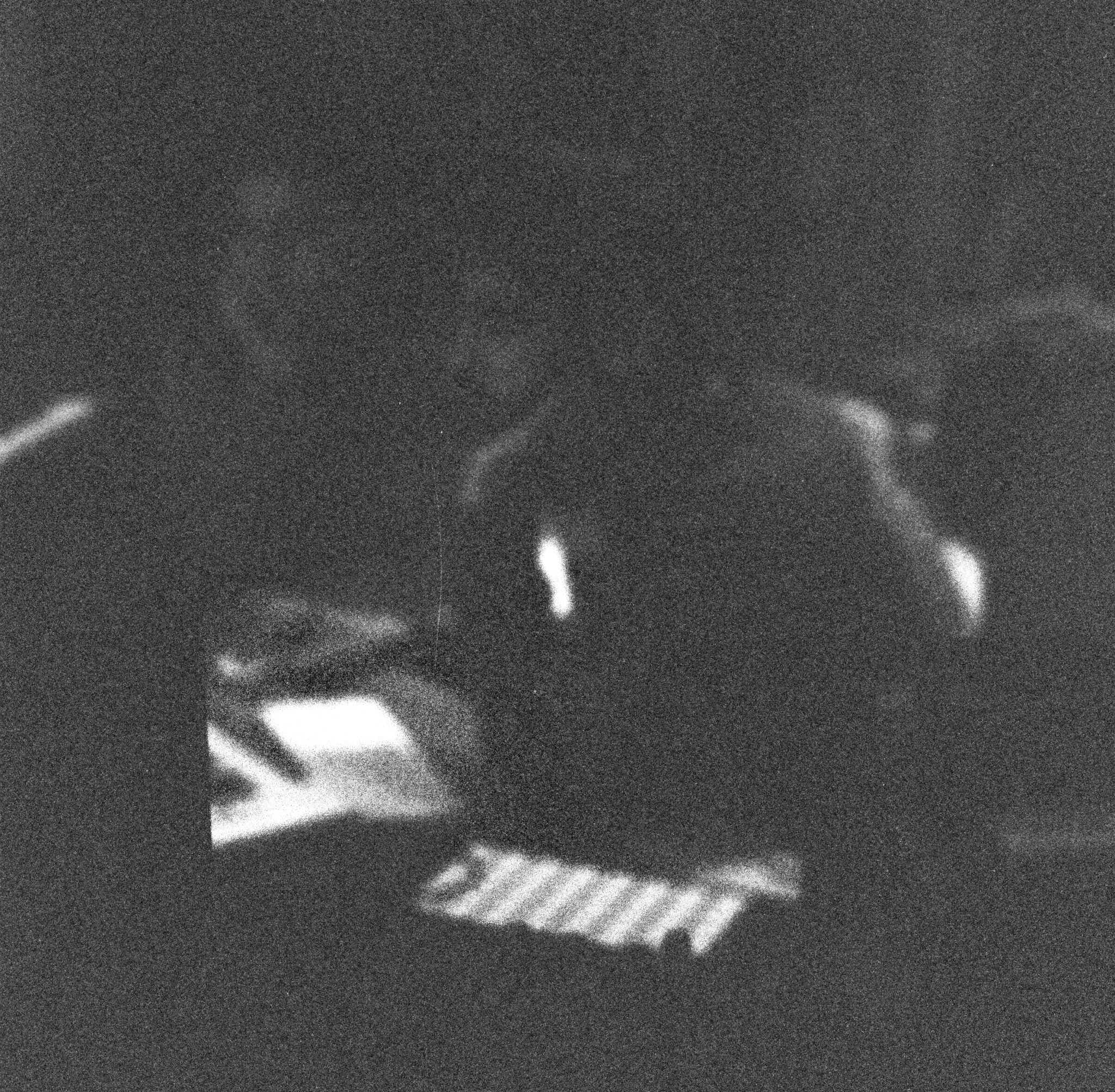
How important was nature to you in the process of making this record?
I started to have much more contact with nature than I ever had before. I started to realize that it’s a place that gives me great awareness, peace, and a lot of things that help me. The starting point of this record with Regina was nature. I was in the middle of a place and with a phone I recorded the sounds around me, I started to feel the noise of nature, to understand Regina’s voice and from there I started to create the songs.
Why is the album called “Mãos No Fogo”?
It was a title from Regina. It has a lot to do with our act of blindly trusting a person. You put your hands on the fire for someone and often get burned by it. That act of blindly trusting someone. And you have to be careful with that, because, and this is me speaking for myself, we always start from that idea, and we go and risk it for the other person and sometimes it goes wrong. Although sometimes it also goes well.
What is the goal and narrative behind the watercolor videos that accompany the songs on Youtube?
That part of the project was made with my cousin Maria and has an edit by Pedro Semedo. At the time I asked them for something that wasn’t literal, that didn’t remind you of an image, but that conveyed a sense of movement and texture. If Regina talks about deaths, I don’t want to see a dead person, I want to feel movement. I like this abstract side of things, seeing the beauty of the movement of paint and how the elements merge, the paint with the water, without referring you to an image. In that sense, I tried to make everything on the record abstract so that, each one of you, could make your interpretation of the record. There you are, I feel it one way, you will feel it another way and someone else will feel it another way.
Mãos No Fogo – Fred and Regina Guimarães.
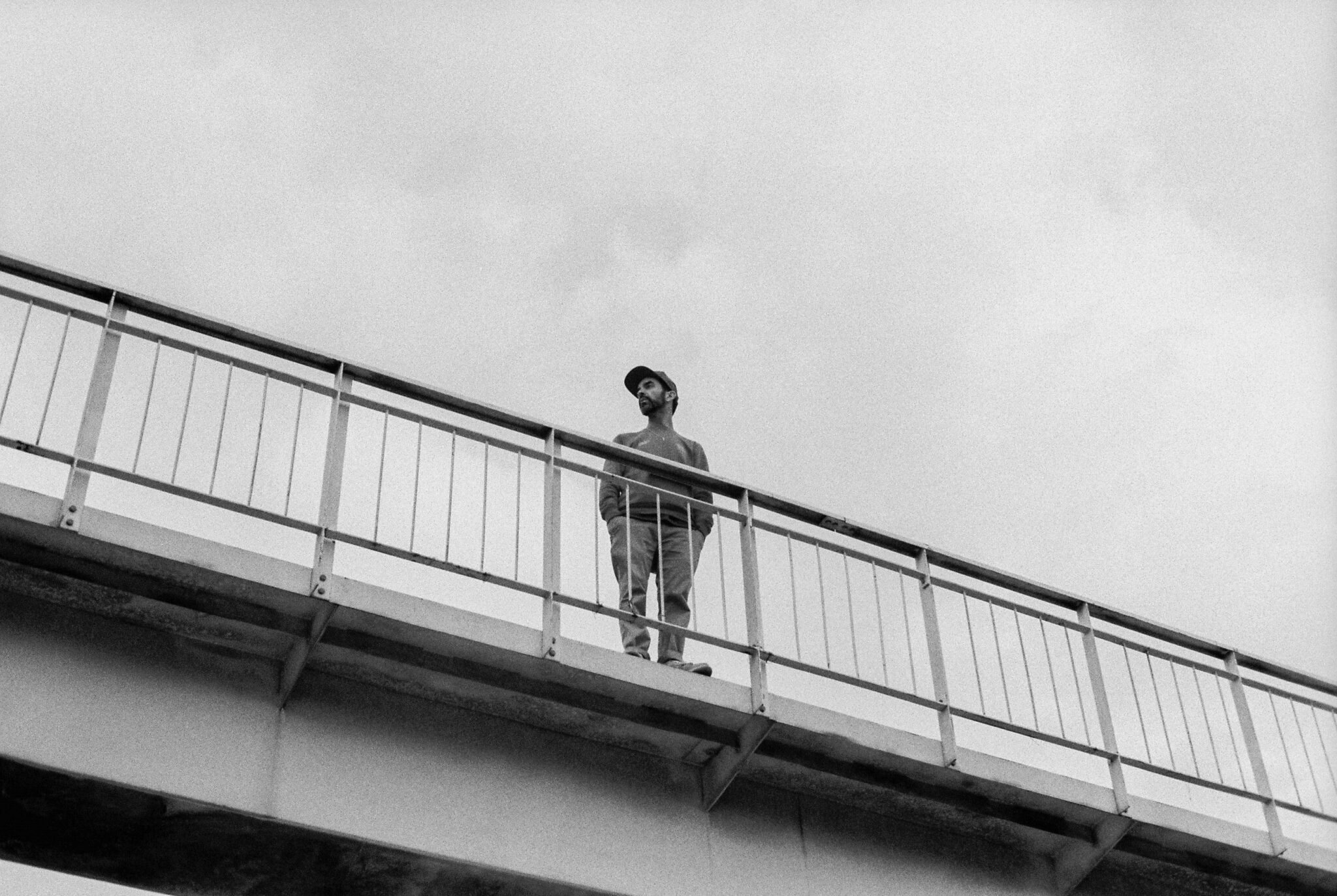

What is the greatest lesson that you have learned from this experience, which came from spending time with Regina during the production of the record?
Regina never put herself in the position of teaching me anything. I put myself in the position of absorbing everything. Regina, without having to say anything, by reading me her poems, was already changing me. I listened to each of her poems a hundred or so times during the past year, every day, to get to that point. It got inside of me in a way, and that was the greatest lesson I ever had. Those words: “Because in deeds and sins, my death is conquered”. That to me is a teaching. That’s where I held on to everything. All her words, all her texts, and all the things that I still try to decipher.
The song “Fuligem” ends with the following verses: “Just as in another text I lost myself, the bosom of the dry fountain. That someone will lose sight of me, because in deeds and sins, my death is conquered.” Why did you decide to end the record this way and what do these verses mean to you?
“Because in deeds and sins, my death is conquered” was the phrase that hit me the hardest all last year. I can’t tell you what Regina means by it. I feel that our path is made of victories, defeats, mistakes, things done well, and things done badly. All of that, it’s going to be your story. Regina speaks of death, of that place to which we all go, and of which we are often afraid, in a beautiful way. That passage to that place is made of those works and those sins. The scales have these two things, you can’t be only good or only bad. The only reason I put that song at the end, was that line, because for me that’s what sums up exactly who we really are and what we’re doing here.
